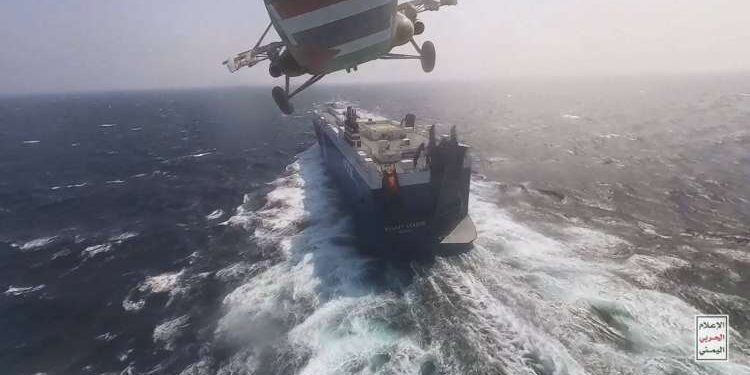Since the start of the war between Hamas and Israel, the Houthis have led a parallel “war” by leading attacks targeting merchant ships “dealing with Israel”.
After more than two months of war in the Gaza Strip, world trade begins to run out of steam. And for good reason, the Houthis control a large part of Yemen and have sworn to continue their attacks on merchant ships, in particular those in relation to Israel as long as the war rages in the Gaza Strip.
Enough to intimidate several shipowners and groups, who have opted for another route like the British BP oil, Maersk, CMA CGM, etc. They all chose to get around Africa now by the CAP of good hope. If the route is safer, it considerably extends the duration of transport and therefore increases costs while causing shortages for certain products.
The coalition put in place by the United States to defend ships passing by the Red Sea, will act as a deterrence in order to avoid regional propagation of the conflict in Gaza, but “stubbornness” of the Houthis may well force Washington to trigger direct strikes against them.
The Houthi rebels do not intend to end their attacks. A high official of this group said this week that attacks would stop only “if Israel stops their crimes and food, medicines and fuel reach the besieged population of the Gaza Strip,” said AFP.
They are even ready to retaliate in the event of an American strike against Yemen, the head of the Houthis, Abdel Malek al-Houthi, said on Wednesday, threatening to attack American naval units, American interests and US commercial ships.
The Houthis led, in two months more than a hundred attacks targeting military buildings, but especially ten merchant ships in 35 countries in more than 35 countries. They returned the passage to the Suez Canal where more than 20,000 merchant ships pass, an unsafe pass, which caused a slowdown in world trade.
The attacks by the Houthi rebels of Yemen take place in the Strait of Bab El-Mandeb. Located off Yemen, it connects the Indian Ocean to the Red Sea, then the Mediterranean Sea via the Suez Canal. A strategic area by which 12% of world trade transit, according to the International Chamber of Shipping (ICS).
It is still too early to estimate the cost of this blockage, but the invoice may be heavy for all injured parties.








